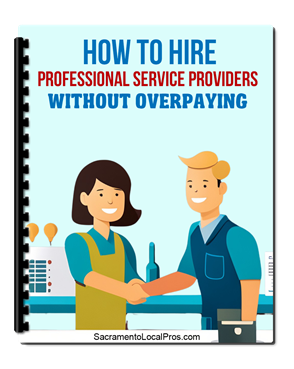Saving for a house can feel like an uphill battle, especially during periods of high inflation when the cost of living rises and everyday expenses stretch your budget thinner than ever.
For many, the dream of owning a home feels increasingly out of reach, but it doesn’t have to be.
Whether you’re a first-time buyer or looking to upgrade to your forever home, taking control of your financial situation and forming effective saving habits is the key to turning that dream into a reality.
This article is here to guide you through proven budgeting strategies designed specifically to help you save for a house, even during challenging economic times.
By following these practical tips, you’ll discover ways to cut unnecessary expenses, prioritize your savings, and make steady progress toward your goal of homeownership, no matter the financial climate.
1)) Set Clear Savings Goals
Establishing clear savings objectives is essential when navigating the complexities of saving for a home, especially in periods of high inflation.
Begin by determining how much you’ll need for a down payment, closing costs, and any additional expenses associated with purchasing a home.
Break that total amount into smaller, manageable milestones to track your progress effectively.
It can be helpful to review your monthly income and expenses, identifying areas where you can reduce spending to allocate more toward your home fund.
Consistently setting aside a fixed amount of money, whether weekly or monthly, builds discipline and ensures you steadily move closer to achieving your goal.
Every dollar saved brings you one step nearer to the home you’ve been dreaming of.
2)) Create A Detailed Budget
Creating a detailed budget is an essential step toward saving for a house, especially during periods of high inflation when expenses can quickly add up.
Start by carefully assessing your income and tracking all your expenses, breaking them into categories such as housing, groceries, transportation, and discretionary spending.
Identify areas where you can cut back and allocate those funds toward your savings goal.
Setting strict limits for non-essential expenses and prioritizing necessities can help keep your spending in check.
It's also important to review and adjust your budget regularly to account for changing prices or unexpected costs, ensuring that your financial plan stays on track even in uncertain economic times.
3)) Track Monthly Expenses
Tracking monthly expenses can be a powerful step toward saving for a house, especially during periods of high inflation.
Begin by categorizing all of your expenses, such as groceries, utilities, transportation, and discretionary spending.
Use tools like spreadsheets or budgeting apps to document every purchase and payment.
This visibility allows you to identify patterns in your spending and recognize areas where you can cut costs without significantly impacting your lifestyle.
Consistently monitoring your expenses ensures that you remain aware of your financial habits, helping you allocate more money toward your savings goal and make adjustments as necessary to stay on track, even when inflation increases the cost of living.
4)) Cut Unnecessary Spending
One effective way to save for a house, even during times of high inflation, is to critically evaluate your current spending habits and identify areas where you can scale back.
Start by distinguishing between essential and discretionary expenses. Focus on reducing non-essential costs such as dining out, entertainment subscriptions, or luxury purchases that may not align with your long-term goals.
By prioritizing your most important financial objectives, such as saving for your future home, you can redirect any money saved from these cutbacks directly into your savings account.
Even small adjustments can add up over time, making a noticeable impact on your ability to achieve your homeownership goal.
5)) Prioritize Debt Repayment
Paying off debt is a crucial strategy when preparing to purchase a home, especially during times of high inflation.
Reducing outstanding balances not only improves your financial standing but also increases the amount of disposable income available to allocate towards savings.
High-interest debt, such as credit cards, can significantly drain resources if left unchecked, so focusing on clearing those balances can provide immediate relief to your budget.
Lower levels of debt also contribute positively to your credit score, which lenders closely examine during the mortgage approval process.
By maintaining a disciplined repayment schedule and managing your finances effectively, you can position yourself to deal with rising costs and take meaningful steps towards securing the funds needed for a home purchase.
6)) Automate Savings Contributions
Setting up automated savings contributions is a powerful tactic to stay consistent with your financial goals, even during times of high inflation.
By scheduling a portion of your income to be transferred directly into a designated savings account, you eliminate the temptation to spend those funds elsewhere.
This method ensures that your savings grow steadily over time, helping you stay on track regardless of fluctuations in expenses or unexpected costs.
Automated contributions also make the process effortless, as you won’t need to remember to manually transfer funds each month.
Over time, this disciplined approach can greatly enhance your financial readiness for a home purchase, giving you a sense of control and progress as you work toward this significant investment.
7)) Explore Side Income Opportunities
Exploring side income opportunities can be an effective way to build savings for a home, particularly during periods of high inflation.
By identifying skills or hobbies that can generate extra cash, individuals can create additional income streams to complement their primary earnings.
For instance, freelancing in areas like graphic design, writing, or tutoring can provide a flexible yet rewarding way to earn more.
Platforms that enable selling handmade crafts, digital products, or unique services can also help boost savings.
Engaging in part-time roles or gig-based jobs, such as ride-sharing or food delivery, can serve as another practical way to increase your income.
Developing these efforts consistently can accelerate the process of saving for a home while fostering financial resilience in challenging economic times.
8)) Limit Discretionary Purchases
High inflation can significantly impact your ability to save for a home, making it crucial to evaluate and adjust spending habits.
One effective strategy is to focus on limiting discretionary purchases, such as dining out, streaming service subscriptions, or frequent entertainment expenses.
These non-essential costs can quickly add up and divert funds from your primary goal of saving for a house.
By prioritizing essential expenses while finding free or low-cost alternatives for leisure activities, you can direct more of your income toward building a substantial down payment.
This disciplined approach not only enhances your financial preparedness but also instills valuable long-term budgeting skills that can benefit you well beyond the home-buying process.
9)) Take Advantage Of Discounts And Deals
Taking advantage of discounts and deals can significantly ease the financial strain of saving for a home, especially during periods of high inflation.
By seeking out promotions, seasonal sales, and loyalty rewards programs, you can reduce expenses on everyday purchases and redirect those savings toward your down payment fund.
Shopping strategically, such as purchasing non-perishable items in bulk or capitalizing on cashback deals, can lead to meaningful cost reductions over time.
Subscribing to newsletters from retailers or using coupon apps can help you stay informed about upcoming savings opportunities.
Adjusting your spending habits in this way not only stretches your budget but also accelerates your progress toward achieving your homeownership goals.
10)) Reevaluate And Adjust Regularly
Regular evaluation of your financial plan is crucial, especially in times of high inflation, to ensure you stay on track with your savings goals.
Prices and economic conditions can shift rapidly, affecting your expenses and income in unexpected ways.
By reviewing your budget, your spending habits, and your savings progress frequently, you can identify any areas where adjustments are needed to maintain efficiency.
Look for unexpected expenses that could be trimmed or reallocate funds to prioritize your ultimate goal of buying a home.
Setting milestones and analyzing whether you are meeting them provides a clearer sense of progress and motivates you to stick to your strategy.
This consistent review process keeps you flexible and prepared to handle the changes that come with a fluctuating economy, turning challenges into opportunities for smarter financial decisions.
Conclusion
Saving money to buy a house is one of the most significant financial goals many people aspire to achieve, and it often feels like a daunting challenge.
However, by consistently setting realistic savings milestones, tracking your progress, and adapting your strategy as needed, you can turn this dream into a reality.
Building a solid budget that prioritizes essential spending while reducing unnecessary expenses allows you to allocate more resources toward your down payment goal.
Regularly reviewing your financial plan not only helps you stay on track but also prepares you to handle unexpected economic changes or opportunities, such as changes in interest rates or housing market trends.
Small, consistent efforts over time can accumulate into remarkable progress.
With discipline, patience, and a well-thought-out strategy, owning a home can move from being a distant aspiration to an achievable accomplishment, providing you with a place of comfort and long-term stability.
Download Our Free E-book!







